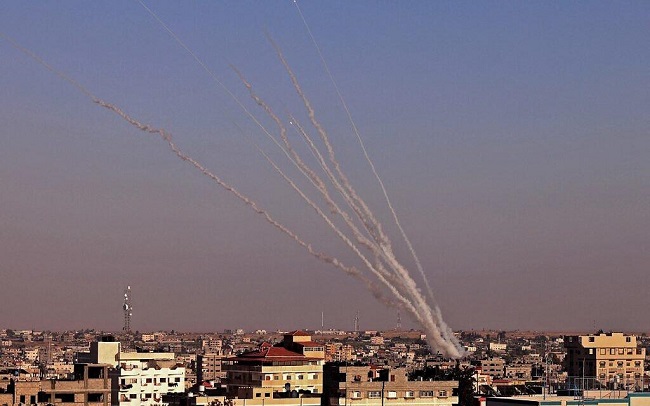What You Can Do About Social Media’s Danger to Israel’s Peace Process
Unfortunately, this year’s rocket firing and civil unrest in Israel have demonstrated how rapidly the Israeli-Palestinian conflict may be escalated by posts posted on social media.
With 53% of American adults now getting their news from social media, instead of reputable news outlets, many people in the United States will learn about the Israeli-Palestinian conflict on sites like Facebook, Instagram, and Twitter.

Millions of people have expressed their views on the dispute swiftly online, which has led to a deluge of harmful false information on both sides. Recognizing and rejecting false narratives on social media around the Israeli-Palestinian conflict that try to promote violence can help in the battle for peace.
Read Also:
- Apple iOS 15
- Doctors Use 3D Printer to Custom-Design Implant for Baby
- Katie Ledecky Feels the Sting of a First Olympic Loss
Contents
Fire at the Al Aqsa Mosque Compound,
Screams of “Fire at the Al Aqsa Mosque compound, Zionist settlers are cheering the attack!” A video showing smoke rising above the Al Aqsa Mosque in Jerusalem’s Old City that received 2.3 million views helped spread this claim rapidly on Twitter during the height of the fighting.
Tweeting, “Israeli Jews singing and chanting as a fire burns outside al Aqsa mosque,” led to a video with an incredible 15 million views. Behavior that is both horrifying and repulsive.
These tweets paint a disturbing picture of discrimination and terrorization directed towards Palestinian Muslims. It’s not the violence per se in these tweets that’s alarming; it’s the fact that none of it has really taken place.
According to Reuters’ investigation, the tree seen on fire in the footage was not the Al Aqsa Mosque. Israeli Jews who were reportedly singing outside were commemorating a Jewish festival, not the fire, according to the Jerusalem Post. But the harm has been done, and the 17 million people who have watched the films will never know the truth.
In Social Media Platforms like:
Social media platforms like Twitter, Facebook, and WhatsApp have been exploited to promote a wide variety of misinformation about the Israeli-Palestinian conflict.
A rumour that Palestinian gangs will soon be storming neighbourhoods in Tel Aviv spread like wildfire through WhatsApp groups. The experts at The New York Times, however, debunked these claims, and they found no evidence of the claimed violence in any of the locations.
The proliferation of social media posts has brought to light more than just the prevalence of false information; in many situations, the problem lies in what isn’t being communicated.
If you want an objective view, withholding information that is necessary to form that view is just as bad as spreading lies.
Author Matti Friedman states in his article “Eight Tips For Reading On Israel” that a claim about the Israeli-Palestinian conflict that fails to account for regional context, leaves out dates, or oversimplifies complex tales is not a convincing argument. Anyone who claims there is just one way to determine reality is only revealing part of the tale.
What is it about these posts that makes them so interesting that they spread rapidly without anyone checking them for factual accuracy? Our innate capacity to recognise and react to threats is the key.
Studies detailed in “The Power of Bad” reveal that the amygdala, a cluster of cells located close to the brain stem, sets off emotional reactions in response to threats. When danger is detected, the brain reacts automatically, focusing on the threat while discounting less urgent stimuli (Tierney & Baumeister, 2021, 73).
Because of our innate susceptibility to fear, we are more inclined to focus on violent posts than positive ones. This produces a skewed narrative of the Israeli-Palestinian conflict, drowning out the many voices offering correct, helpful information.
Read Also:
- Apple’s $19 Polishing Cloth Sold Out!
- Fifa President Accused of Masterminding European Super League …
- Trump will Return to Spotlight with Appearance at CPAC
Regardless of where one stands on the Issues at Play in the Israeli-Palestinian conflict,
It is undeniable that the proliferation of false claims on social media is fueling animosity between supporters of the two sides. By using provocative headlines to draw our attention, they divert us from the issues at hand and fan the flames of discord by presenting one side’s viewpoint as fact.
Instead of letting social media serve as our only window onto the world, we should deliberately reject one-sided stories and educate ourselves in the truth as a means of advocating for those affected by the Israeli-Palestinian conflict.
Regardless of where we stand ideologically, we must all do all we can to stop the dissemination of misinformation on social media if we want to see peace in the Middle East.




